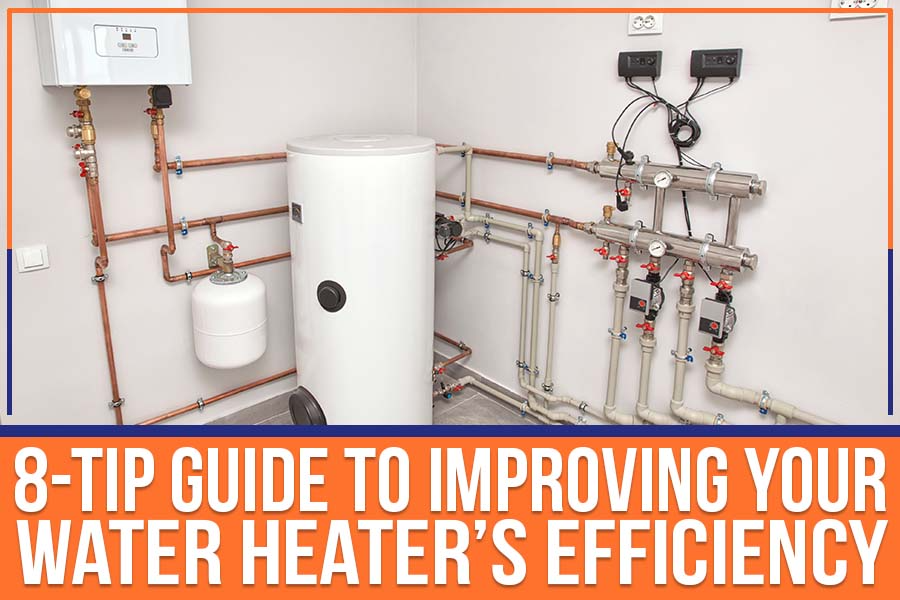
- Post author:admin
- Post published:January 3, 2023
- Post category:A Better Plumber Blog
- Post comments:
Key Takeaways:
- Most people only think about their water heater very often once it stops working properly, but you can improve your water heater’s efficiency with little effort.
- Saving energy is important for many reasons, including reducing your monthly utility bills. Home water heaters are responsible for a lot of energy consumption in the average American household, accounting for about 20% of your home’s total energy use.
- You can use a few hacks to improve your water heater’s efficiency and thus lower your energy bills, such as installing a water heater blanket or adjusting the temperature setting.
- Fixing leaks, draining the sediment from the tank, upgrading to a more efficient model, and insulating your pipes are also ways to boost efficiency.
- Regular maintenance tasks like flushing out the tank twice a year are important for preventing future problems and keeping your unit from working harder than necessary.
Most people only think about their water heater once it stops working properly. But did you know you can improve your water heater’s efficiency without too much effort? Saving energy is important for many reasons. Not only does it help the environment, but it can also save you bucks on your monthly utility bills. It’s no secret that water heaters are responsible for a lot of energy consumption in the average American household. In fact, water heaters account for about 20% of your home’s total energy use! If you’re looking to reduce your monthly energy bill, making small tweaks to your water heaters can save you much money in the long run. Here are eight tips by A Better Plumber & Sewer to help improve your water heater’s efficiency and lower energy costs.
Home Water Heaters: How Do They Work?
The water heater, otherwise known as the water heater or hot water tank, is a machine that helps to create hot water for your home by converting energy into heat. There are various types and models of water heaters available today, but they all use a fuel source (natural gas, propane, electricity, solar power, etc.) to heat the water inside a tank. The tank is then insulated to help keep the water hot until it’s needed.
When you want hot water, the first thing that happens is cold water enters the tank through a supply line. The cold water then sinks down to the bottom of your tank, where it’s heated by either an electric heating element or a gas burner (depending on your model). As the water is heated, it rises to the top of the tank, where it’s stored until you need it. When you turn on your hot water faucet, the hot water is drawn from the top of the tank and sent to your faucet.
You can take a few steps to improve your home water heater’s efficiency and thus lower your energy bills.
Tips To Boost Your Water Heater Efficiency
1. Install A Water Heater Blanket
A water heater blanket is an insulating blanket that goes around your water heater. The blanket helps keep the heat in, so your water heater doesn’t have to work as hard (and use as much energy) to heat the tank. Most blankets are fiberglass and fit snugly around the outside of the tank. You can find them at most home improvement stores.
2. Adjust The Temperature Setting
If you have a gas water heater, a thermostat controls the water temperature in the tank. You can adjust this setting to lower the temperature and save energy.
Most showers in the United States are 106 degrees. If you set your water heater’s thermostat to 120, you will have more than enough heat, and it will save energy. Setting it to lower to 120 degrees is unnecessary, and reducing your shower temperature is an easy way to conserve energy—resulting in a 6-10% decrease in power usage for your water heater.
Suppose your water heater has a thermostat that doesn’t show actual temperature settings. The “warm” setting is usually the more efficient (and safer) option.
3. Fix Leaks
A leaky faucet or shower head can waste hot water and increase energy bills. If you leak, it’s important to fix it right away. You may be able to do this yourself, or you may need to hire a plumber.
4. Drain The Sediment From The Tank
Over time, sediment can build up in the bottom of your water heater tank. This sediment can insulate the heating element and prevent it from working properly. Draining the tank’s sediment can improve your water heater’s efficiency.
5. Upgrade To A More Efficient Water Heater
If your water heater is over ten years old, it may be time to upgrade to a more efficient model. Newer water heaters are much more energy-efficient than older models. When you’re ready to buy a new water heater, choose an energy-efficient model.
6. Insulate Your Water Pipes
An easy way to make your water heater more efficient is by insulating your pipes. You can significantly reduce heat loss in your home by researching how to properly measure and install insulation on your hot and cold water pipes.
If you own an older water heater, insulate it with a water heater insulation blanket kit. Most newer models have built-in insulation and may not require this extra level of protection. To learn more about properly insulating your water heater, read Energy Saver Guide from energy.gov.
7. Install Efficient Shower Heads And Faucet Attachments
You can reduce the amount of hot water you use by replacing current plumbing fixtures with more efficient alternatives. Low-flow fixtures help Reduce how many gallons per minute become wastewater. Shower heads and faucet aerators are easy to replace and don’t cost much. The difference in energy consumption is well worth it.
8. Drain The Tank
You should flush your water heater out two times a year to ensure its efficient function. Always consult your owner’s manual before beginning this process. Remember to disconnect the energy source, close the water supply valve, and attach a hose from the drain valve outside your home–such as a storm drain or large five-gallon bucket.
If you need more specific instructions, refer to your owner’s manual. If you feel unsure during the process, contact a professional plumber rather than try to flush it out yourself.
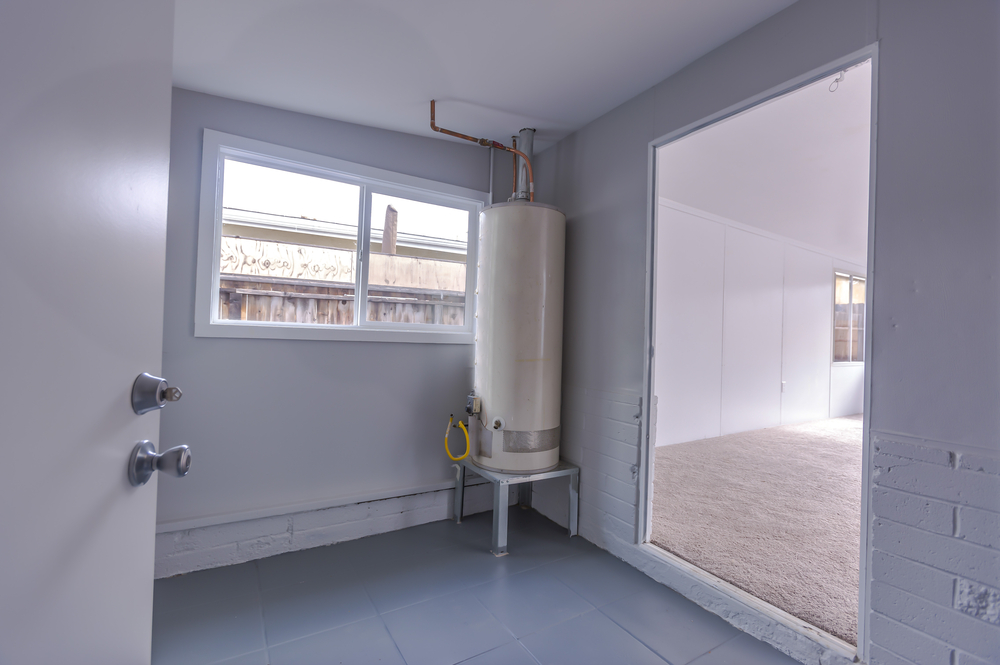
Regular Home Water Heater Maintenance Is Important
Yep, if you want your water heater to have a long, productive life, you’ve got to treat it right by performing regular maintenance tasks. These will keep your unit from working harder than necessary and prevent future problems.
Looking For Water Heater Repairs In Arlington Heights? Let Us Help!
A Better Plumber And Sewer is the company to call when you require a hot home water heater installation or any maintenance, repairs, and replacements in Arlington Heights. Our uniform service professionals will thoroughly assess your needs and advise you on the best unit to prevent further plumbing problems in your home or business. Learn more about our current water heater and sewer services by calling us today, or request a free quote now!
Preventative Maintenance Of Sewer Lines In Winters
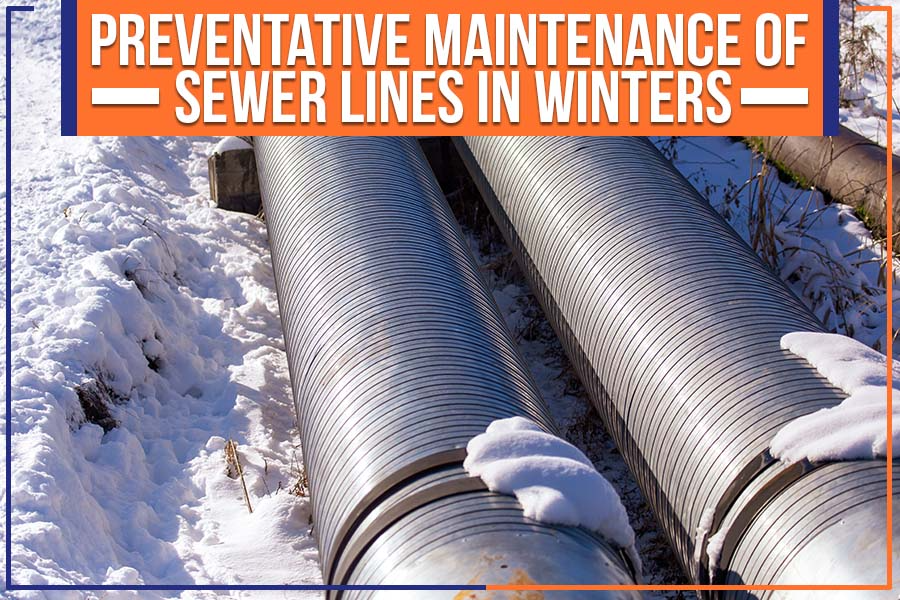
- Post author:admin
- Post published:December 16, 2022
- Post category:A Better Plumber Blog
Key takeaways:
- It’s important to reduce the possibility of unneeded clogs by not putting oil, grease, or fat down drains and disposing of food waste properly.
- Leaks in sewage lines have the potential to produce even more severe problems, including property damage and health issues for your family.
- You can prevent pipes from freezing by letting your faucets drip slightly overnight, keeping your house warm when you leave, and insulating sewer lines before cold weather hits.
- Regular cleaning of the sewage line is required to remove dirt and other things that might cause blockages and hinder the passage of waste.
It’s that time of year again! The leaves are dropping, the air is crisp, and residents are preparing for another long winter. But before you do, there’s one important thing you need to take care of your sewer lines. Yes, believe it or not, those plumbing arteries that whisk your waste away need a little TLC too. Here are a few tips by A Better Plumber & Sewer on preventative maintenance of your sewer lines this winter.
Tip 01: Understand Your Property
The property owner is responsible for the main sewer line up to the property’s perimeter, so familiarizing yourself with every part of your system is critical. According to statistics, one out of every ten homes has a leak that wastes at least 90 gallons of water daily. This is only one of the numerous reasons why many homebuying recommendations recommend employing cameras to explore the issue before acquiring a new house. In reality, it’s not a bad plan for existing properties.
Compiling a detailed inventory of all appliances linked to sewage pipes is also necessary. This encompasses anything from bathtubs to trash disposal equipment and should include pipes. A well-organized system will help you schedule annual maintenance while expediting fault-finding operations.
Analyzing all aspects of your plumbing systems, especially under sinks, allows you to detect tiny fractures and weaknesses before they become plumbing disasters.
Tip 02: Don’t Dump Anything Down the Drain Other Than Water
Clogged drains and sewage pipes cause many plumbing problems. Removing and cleaning the u-bend usually solves the problem when the obstruction is close to an appliance. On the other hand, blockages can occur at any point in the system. As a result, one of the wisest things you can do as part of your sewage line maintenance is to reduce the possibility of unneeded clogs. It necessitates a long-term commitment from the entire family.
Don’t put oil, grease, or fat down your drains. This thickens over time and will gradually block your pipes. The same goes for food waste; while some can be flushed away, it’s best to compost kitchen scraps. Disposable wipes, sanitary napkins, and paper towels should also not be flushed as they don’t break down in the water and can cause blockages.
Tip 03: Keep an Eye Out for Slow Drains
A slow-draining sink or tub is one of the first signs of an impending plumbing disaster. This usually indicates that there is a clog somewhere in your pipes. Don’t ignore this warning sign! Using chemical drain cleaners can maintain the pipes clear of clogs on a monthly (or fortnightly) basis. You can also use the drain snake quarterly or whenever the first signs of a blockage appear. As a result, it is less likely that a major clog will develop.
Tip 04: Watch Out for Leaks
Leaks in the sewage line pipes have the potential to produce even more severe problems, including property damage and health issues for your family. Consider the following symptoms: loss of boiler pressure, water dripping noises, moist spots or streaks, odors or mold development, and increased water bills. When you’re not going to use the restrooms, keep an eye on your water meter for a few hours. If it rises, there is a leak.
Tip 05: Insulate Your Pipes.
One smart preventative maintenance is insulating sewer lines before the cold weather hits. This will help keep them from freezing and breaking during the winter months. You can find pipe insulation at most hardware stores or online. Cut it to size and then wrap it around your sewer lines (being careful not to block any vents or drains). This is a quick and cost-effective way to give your pipes some extra protection this winter.
Tip 06: Let Your Faucets Drip
Once the temperature outside begins to dip, let your faucets drip slightly overnight. This may seem counterintuitive, but it helps prevent your pipes from freezing because it keeps water moving through them instead of sitting still in one spot where it’s more likely to freeze solid. Plus, it’s a good excuse to let someone else do the dishwashing for once!
Tip 07: Keep Your House Warm
Another way to prevent your sewer line from freezing is to keep your house warm. This may seem common sense, but you’d be surprised how many people turn their heat down (or off) when they leave the house in winter. If you’re going for more than a couple of hours, set your thermostat to at least 55 degrees.
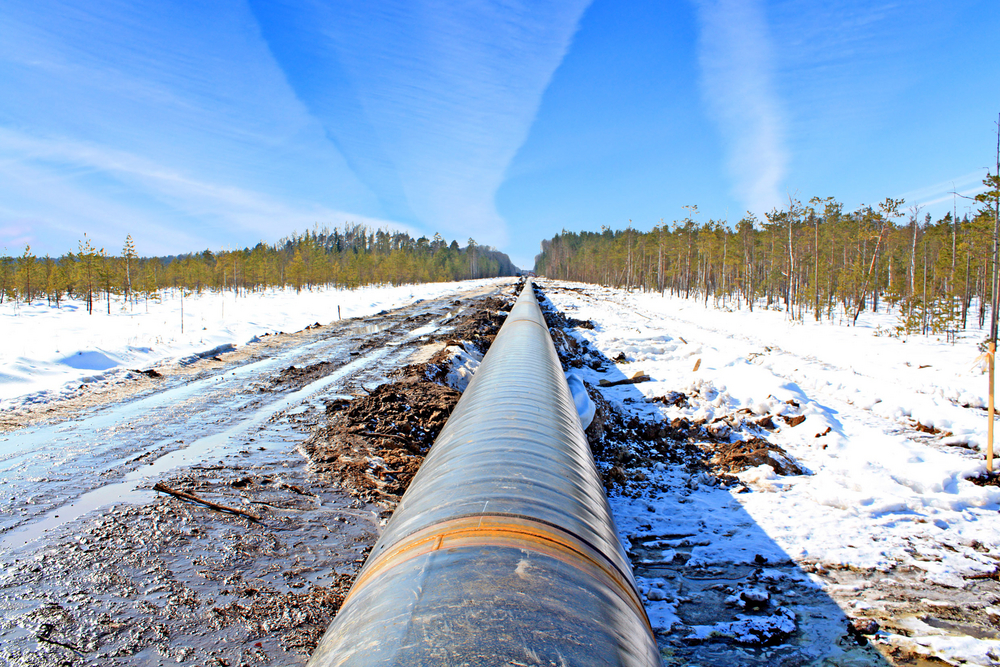
Tip 08: Get Your Sewer Lines Inspected and Cleaned Regularly
Regular cleaning of the sewage line is required to remove dirt and other things that might cause blockages and hinder the passage of waste from the residence to the municipal sewer or private septic system.
Schedule sewer line cleaning with a qualified plumbing firm for the greatest results. The process begins with a video check of the sewage pipe. A camera is used to inspect the sewage line and assess its condition. This examination can help detect and locate any obstructions that have formed in the drain pipe. Most professionals use hydro jetting.
Hydro jetting is a cleaning method that scours the pipe’s inner wall. High-pressure water is pushed into the line to remove stuck-on dirt and flush it out of the line. It is effective in preventing any drainage issues.
Final Thought:
Even if you follow these guidelines, freezing temperatures and severe weather might cause complications. Having a plumber on call in an emergency is a good idea.
A Better Plumber & Sewer, serving Fox Lake, can assist you in winterizing your system and responding swiftly in emergencies, in addition to preventative treatment and routine maintenance.
If you want to ensure you’re ready for seasonal changes, need a fast check to uncover problems, or need an emergency repair, contact us today!
Plumbing Quick Fixes, You Should Learn
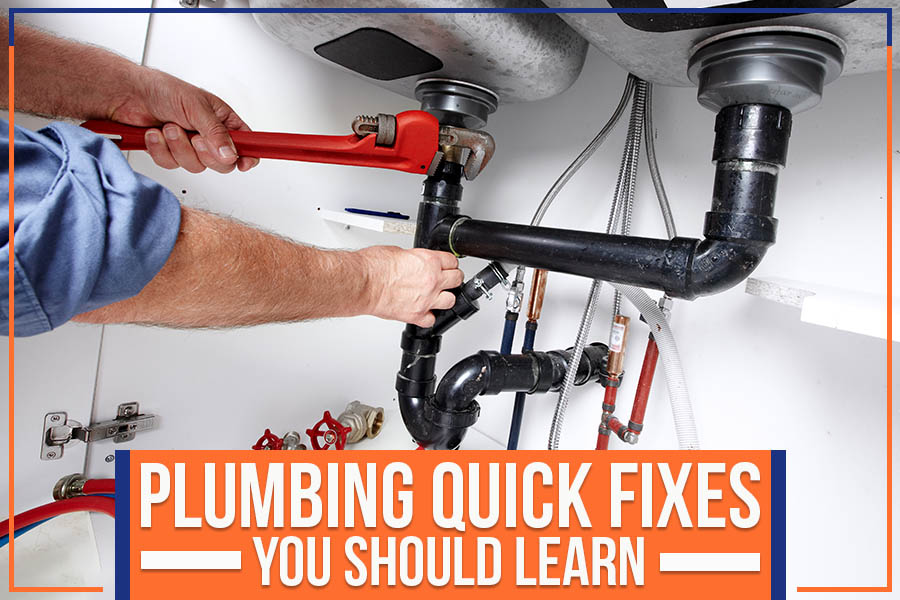
- Post author:admin
- Post published:December 1, 2022
- Post category:A Better Plumber Blog
Key Takeaways:
- Plumbing emergencies can happen anytime, so being prepared is essential.
- Common plumbing emergencies include burst pipes, leaks, and clogs.
- You can fix most plumbing emergencies relatively quickly, but some may require the help of a professional.
- Be sure to know the location of your shut-off valves in case of an emergency.
- If you are unsure how to fix a plumbing issue, it’s always best to call a professional.
What do you do when your toilet overflows in the middle of the night? Or when your shower starts spewing water all over the bathroom floor? Plumbing emergencies can be notoriously tricky to deal with.
Unfortunately, plumbing problems never seem to happen at a convenient time. In this situation, making the most of your skills and getting a quick fix for the emergency is essential. Otherwise, it could result in far worse problems for your home.
A Better Plumber & Sewer offers some fixes for your plumbing problems that you can DIY until a professional plumbing repair is called.
What is Plumbing Emergency?
Water damage is one of the most common – and costly – problems. In fact, according to the reports, water damage and freezing account for nearly one in every fifty insurance claims. Among the causes of water damage, faulty plumbing is the main one.
Water can wreak havoc on your home in several ways, so it’s essential to be prepared for anything.
A plumbing emergency is any situation that poses a risk of severe damage to your property and your family’s health. While some plumbing issues can wait for a residential plumber to repair, others must be fixed immediately to prevent further damage.
Some common examples of plumbing emergencies include:
- Burst pipes
- Clogged Drains
- Clogged Toilets
- Leaky Faucets
- Water Heater Issues
Quick Fixes for Plumbing Emergencies
These are some examples of what could go wrong in your home. You should stay calm and call a plumbing repair service if any of these occurs. In the meantime, here are a few quick fixes to some of the most common plumbing emergencies:
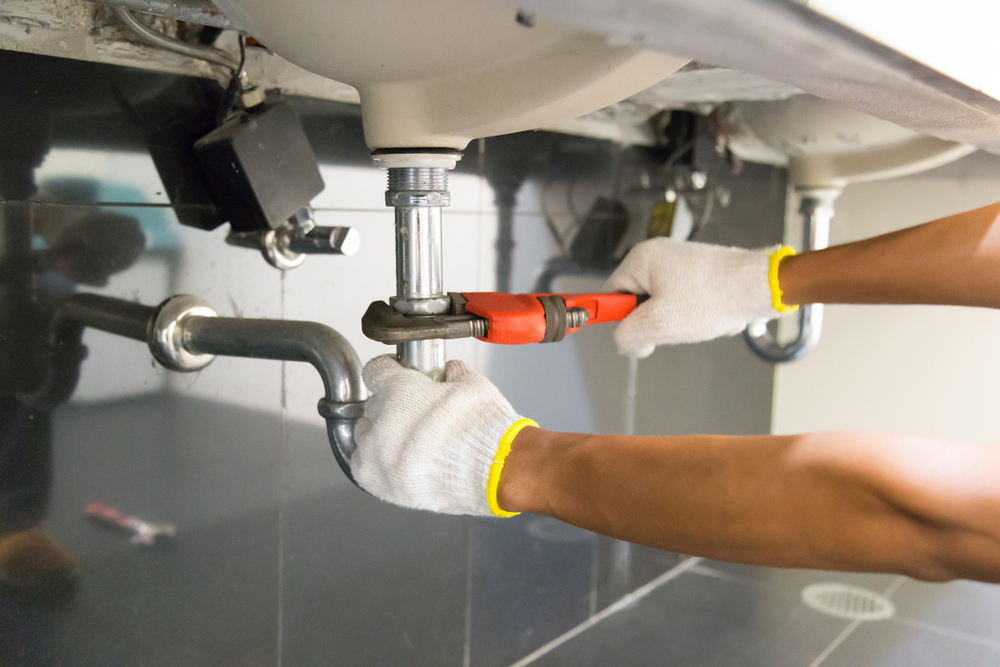
1. Burst Pipes
A burst pipe is when water gushes out of a pipe. Among plumbing emergencies, it’s the most common one. Burst pipes usually occur due to freezing temperatures. When water freezes, it expands and puts pressure on the pipes. It can cause them to crack or break.
If you’re dealing with a burst pipe, the first thing you should do is observe where the pipe supplies water to. If it’s a faucet, turn off the water to that faucet. If it’s the main line, you’ll have to shut off the entire water supply to your home.
Next, use epoxy and apply it to the outside of the pipe. It will temporarily hold the water in until a professional can come and fix it.
2. Clogged Drains
While water flowing in might not always be the issue, often, it is draining that becomes problematic. Clogged drains are another problem you may have to deal with. Clogs form from materials such as grease, hair, or other objects accidentally flushed down the toilets.
There are two ways to fix a clogged drain: with a plunger or with a snake. A plunger is a more common method as it’s less expensive and easier to use. Put the plunger over the drain and push and pull it until the clog is released.
If that doesn’t work, you can try using a snake. It is a long, flexible piece of metal that you insert into the drain. The snake will help break up the clog so water can flow freely. If that doesn’t work, it’s best to wait for the residential plumber to arrive. Until then, avoid using that sink, shower, or tub.
3. Clogged Toilet
Sometimes plumbing emergencies can be nasty, and when we mean nasty, we suggest a clogged toilet. Clogged toilets can occur for several reasons, such as too much toilet paper, baby wipes, or even accidentally flushed down toys.
If you have a plunger, start with that. If not, a snake will probably do the trick. Insert the snake into the toilet and move it around until the clog is released.
You’re most likely to resolve the issue. However, we advise you to call residential plumbers if you cannot fix it after a few attempts.
4. Leaky Pipe Joints
Drip, drip, drip… we’re sure you’ve heard that before. Leaky pipes are annoying and can also waste a lot of water and money if left unchecked. The Environmental Protection Agency reports that one leaky pipe dripping at one drip per second can waste 3,000 gallons of water. That equals about 180 showers.
The first thing you should do is turn off the valve that supplies water to the pipe. Next, measure the pipe circumference to get a rubber joint of the same size. After that, remove the old rubber joint, clean off debris from the pipe, and put the new rubber joint on. Put some plumber’s putty on one side of the new rubber joint and slide it into place. It can prevent water from leaking until the residential plumber arrive.
5. Water Heater Issues
With the arrival of winter, cold showers can be a nightmare. Sometimes water heaters can also malfunction. It could result in a low quantity of hot water or none at all.
If you’re faced with this situation, the first thing you should check is the circuit breaker. If it tripped, reset it and wait for the water heater to heat it again.
If that’s not the issue, the problem could be with the heating element or thermostat. These are located inside the water heater unit and can easily be repaired or replaced.
In some cases, the entire water heater may need to be replaced. It is generally only necessary if it is old or damaged beyond repair. Either way, it’s best to wait for the plumbing repair service to get it checked.
Also Read: Drain Clog Alert! When Should You Call A Plumber?
Conclusion
We hope you never have to face a plumbing emergency in your home. But if you do, now you know how to deal with it! Just remember to stay calm, turn off the water, and call a residential plumber as soon as possible.
If you’re looking for residential plumbing services in Round Lake, IL, consider A Better Plumber & Sewer. We’re professional plumbing services that can deal with residential and commercial plumbing. Our professionals can help you with any plumbing repair, big or small! Get in touch to get a free quote.
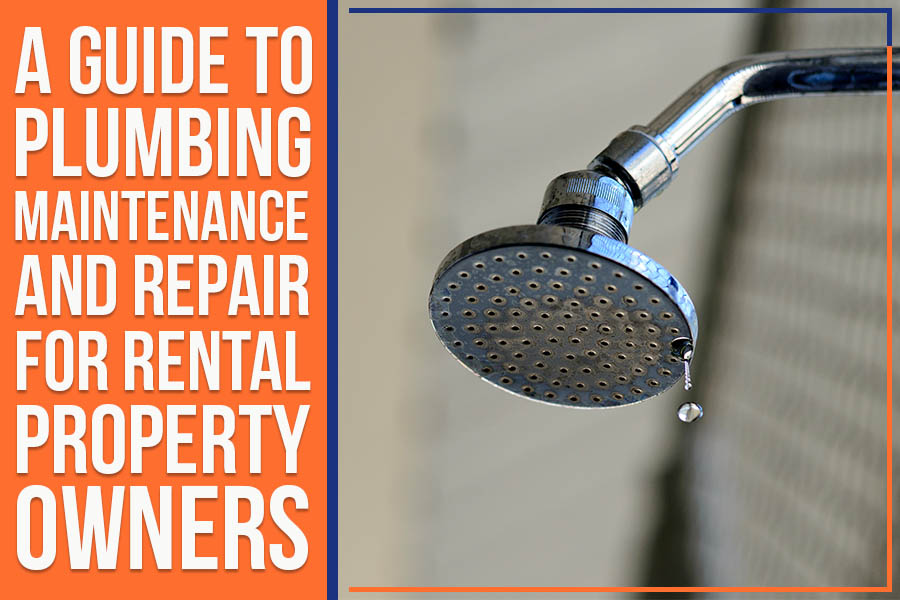
- Post author:admin
- Post published:November 16, 2022
- Post category:A Better Plumber Blog
Key Takeaways:
- As a landlord, you are responsible for maintaining the plumbing in your rental property and ensuring that it is in good working order.
- Tenants are also responsible for proper plumbing usage. They must notify the landlord of any issues as soon as they arise.
- If a tenant fails to maintain or damages the plumbing properly, they may be liable for repairs.
- Landlords have the right to enter their rental property to make repairs at any time but should give tenants notice whenever possible.
- Both landlords and occupants have certain rights when it comes to plumbing maintenance and repair. Familiarizing yourself with these rights can help avoid potential problems down the road.
As a rental property landlord, it’s important to be aware of the plumbing maintenance and repair responsibilities that fall on your shoulders – and those of your tenants. Knowing who is responsible for what will help minimize headaches down the road.
This guide by A Better Plumber & Sewer will give you a basic overview of plumbing maintenance for rental properties, so you can be prepared before any issues arise.
What Are the Most Common Plumbing Problems for Landlords?
As you may expect, no rental property is always ideal. Landlords are bound to run into plumbing troubles, whether it’s basic upkeep, renovations, or more substantial concerns. However, when these problems arise, investors must recognize the warning signals and address plumbing concerns as soon as possible. So, let’s go through five of the most typical plumbing difficulties landlords have in rental properties.
Drain Blockages:
Drains often get clogged by tenants pouring grease or flushing things like diapers and sanitary napkins down the toilet. If a landlord only discovers this when there’s already a backup, they may be looking at more than just a simple repair.
If you have clogged drains in your rental home, don’t put them off. Instead, carefully clean the drain and disassemble any sections that may hold dirt so you may also clean them.
Leaky Faucets:
A leaking or dripping faucet may not appear to be a major concern, but it can waste a lot of water and raise your water bill. Not to mention, the constant noise can be incredibly annoying for occupants.
Fortunately, this problem is simple to resolve and does not need much effort. In most cases, you must turn off the water valve and replace the little washer found on the faucet handle.
Running Toilets:
A running toilet can also waste a lot of water and run up the water bill. It’s also one of the most common complaints from tenants. To resolve this issue, you need to buy a new flapper, which should cost approximately $20 at your local hardware shop. The flapper will usually come with instructions on how to replace it. But it is always better to call reputable plumbing and sewer companies for help.
Leaking Pipes:
Leaking pipes can cause all sorts of problems, from water damage to mold. You should call a plumbing expert for assistance if you find a leaky pipe.
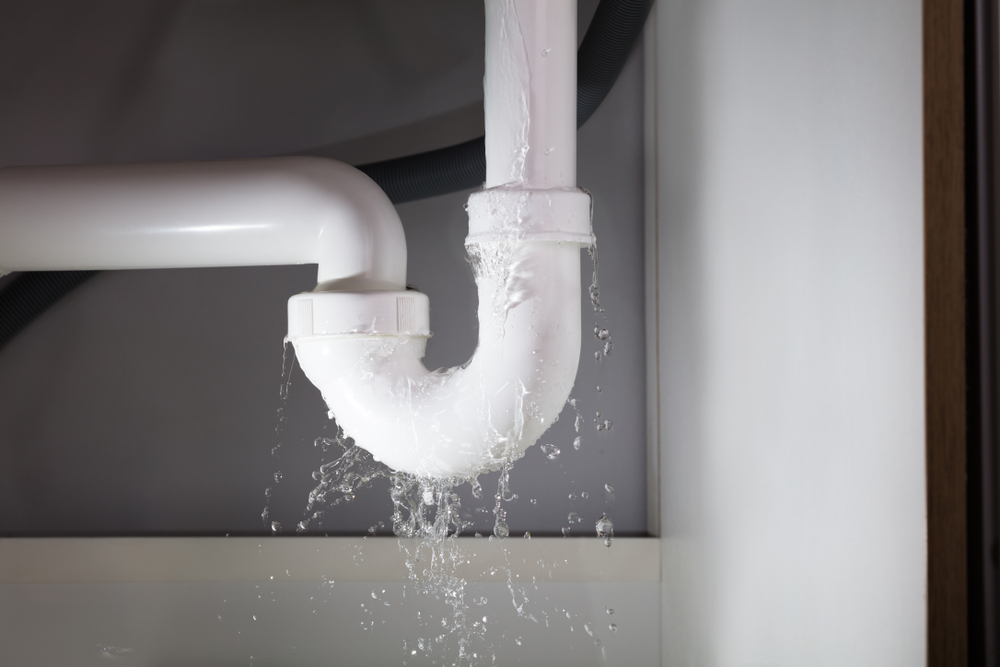
Water Pressure Issues:
Tenants may experience significant annoyance if the water pressure is too high or too low. The first step in resolving a low water pressure issue is to inspect the property for blocked drains or faucets. If that isn’t the case, you should investigate further with a water pressure gauge.
Landlord’s Plumbing Responsibilities
Landlord and tenant legislation recognizes renters’ right to a habitable home with the appropriate systems. This comprises, in general, safe structures and effective systems. However, it indicates that the house must have proper plumbing and sanitary amenities. These components must operate to the renter’s satisfaction when new folks move in.
Aside from supplying working plumbing, the landlord must also provide the following:
Perform a property inspection before the tenant move-in:
This will help you identify and fix potential plumbing issues before your tenant moves in. Try to inspect with the prospective tenant present so they can point out any concerns about the property’s plumbing.
Keep the systems in good functioning order:
During the tenancy, the landlord must keep the plumbing in excellent working order. Even after the renters have moved in, it is the owner’s responsibility to keep the plumbing in good working order.
Carry out the necessary maintenance:
The owner is responsible for the plumbing’s upkeep. The landlord’s responsibility is for any damage caused by natural wear and tear or improper plumbing use.
Take care of any plumbing issues:
Emergencies are imminent hazards to the home’s livability. Examples are overflowing toilets, broken pipes, and water supply interruptions in any house section.
What Is the Landlord’s Right?
The law is on the landlord’s side when it comes to plumbing. According to most state laws, the owner has the right to enter the rental unit to make repairs, even if the tenant is not home.
The best way to protect your rights as a landlord is by having a detailed lease agreement that covers all aspects of plumbing maintenance and repair.
Tenant’s Plumbing Responsibility
The tenant is also partly liable for the plumbing in the house. Suppose the renter fails to perform their role and the plumbing is damaged. In that case, the tenant will be partially or entirely liable for the repairs. Tenant obligations include the following:
Proper Plumbing Usage:
Renters must refrain from damaging the plumbing by flushing non-biodegradable items down the toilet or allowing hair to block the drain.
Inform The Owner of Any Issues:
Renters must notify the owner of any difficulties as soon as they become aware. If they fail to do so and the harm worsens, the renter bears some blame.
The Obligation to Limit the Damage:
If a renter notices plumbing damage, they must take the appropriate actions to limit the degree of the damage to the owner’s property until the landlord comes to repair the problem.
Responsible For Safeguarding Their Possessions:
During a plumbing emergency, tenants are responsible for securing their items. The landlord will not compensate the renter for personal damage.
What Are Tenants’ Rights?
Every state has different laws, but generally, landlords must make all repairs promptly. If they do not, the tenant may have the right to:
- Sue the landlord
- Withhold rent
- Move out without notice.
Conclusion:
Understanding your rights and obligations as a landlord or tenant about plumbing maintenance and repair is critical. By familiarizing yourself with the relevant laws in your state and keeping open communication with your landlord or tenants, you can avoid many potential problems down the road.
Whether you are a rental property owner or a tenant with plumbing issues, A Better Plumber & Sewer, serving Schaumburg, is here to help! With years of experience, we make every effort to stay current on plumbing expertise and laws.
So, call us or request a free quote today!
Why Grease Doesn’t Belong In Your Drain
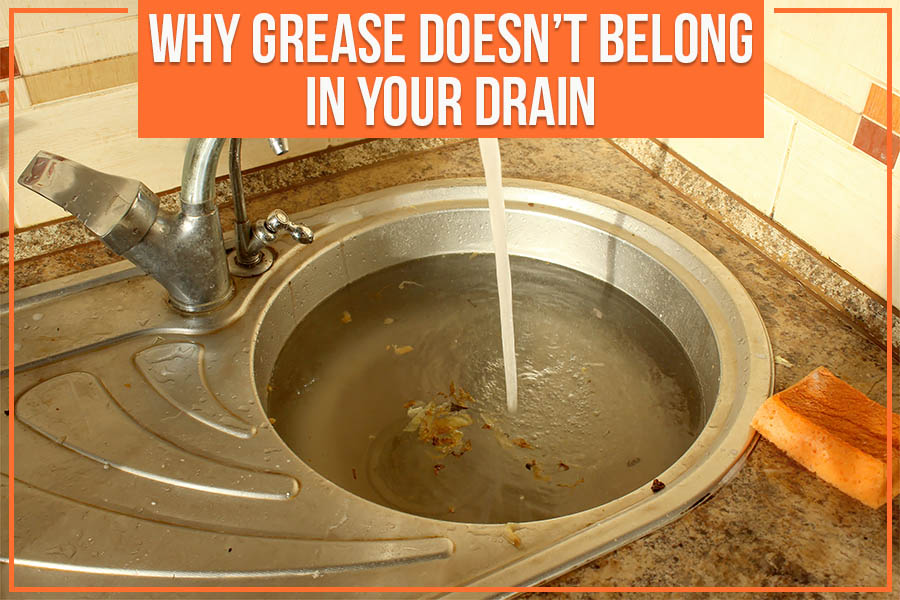
- Post author:admin
- Post published:October 27, 2022
- Post category:A Better Plumber Blog
Key Takeaways:
- Grease is one of the leading causes of clogged drains.
- When the grease cools, it hardens and can attach to the sides of your pipes, slowly accumulating over time and causing a blockage. It can also damage the environment.
- You can do a few things to help combat this problem: Pour hot water down the drain after each use, use a grease trap, and throw grease in the trash instead of down the drain.
Most people know the consequences of pouring grease down the drain. But despite how reasonable this may seem, plenty of people still send greasy gunk down their drains accidentally or otherwise. And while a bit of grease may not seem like a big deal, it can cause significant problems for your plumbing.
So today, A Better Plumber & Sewer will take a closer look at why grease should never be sent down the drain – and what you can do to avoid making this mistake.
Why Doesn’t Grease Belong in Your Drain?
Reason 01: Greasy Is Sticky
When it becomes heated, grease melts and becomes liquid. But grease doesn’t last very long when it’s liquid. It occupies considerably more space once it has cooled and solidified into a sticky solid. If you have a septic tank, the solid waste will fill the tank rather than discharge into your drainage field, necessitating more frequent cleanings.
Reason 02: Grease Can Cause Serious Clogs
When grease enters your sewer line, it will eventually cool and congeal. As more grease enters the sewer line, it will build up on the pipe’s walls. This build-up can narrow the diameter of the pipe, causing a clog. Clogged sewer lines can cause sewage to back into your home through the drains, which can cause serious health hazards.
Reason 03: Grease Can Create a Foul Smell in Your Home
When grease builds up in your sewer line, it can cause a foul smell to permeate your home. This is because the build-up of grease can trap other waste products, which can then decompose and produce a foul odor.
Reason 04: High Temperatures Create Problems
Pipes, especially plastic pipes, have a limited heat tolerance. High heat can harm the plastic pipes, leading to leaks. Grease shouldn’t be poured down the drain at any time, especially not just after you remove it from the burner. Most plastic pipes cannot withstand temperatures over 140 to 200 degrees, while frying grease can reach temperatures 300 degrees or more. Even worse, oil has a propensity to hold onto heat for an extended period before it begins to cool.
Reason 05: Environmental Issues
As mentioned, grease can lead to clogs. And as we all know, clogs eventually lead to overflows. When this happens, the water filled with grease and waste from your drain enters our waterways. This can harm the environment, killing marine life and disrupting the delicate ecosystem.
How Can You Overcome This Problem?
Stop Pouring Grease Down the Drain:
Since residential sources account for 88% of grease-related sanitary sewage overflows, it’s time to stop adding to global sewer problems. Simply stopping to pour grease down the drain is the first step in restoring health to drains. Grease disposal in the garbage can be done in only a few minutes.
If you must get rid of it immediately, run cold water over the grease in the pan before pouring it down the sink. This won’t completely solidify the grease, but it will help to cool it down and make it less likely to adhere to your pipes.
Put The Grease in A Bottle or Can:
A better alternative is to either bottle it or pour it into an empty container to throw it in the garbage. You should use a container with a cover to retain the grease. Spilling grease or oil into the trash might cause it to inadvertently flow into the sewage, defeating the purpose of maintaining clean and hygienic plumbing and sewer systems.
Wipe Down Your Pots and Pans with A Paper Towel:
When you’re finished cooking, take a paper towel and wipe your pots and pans. This will help absorb any grease that might have splattered while cooking and keeps it from going down the drain.
Install a Grease Trap:
Install a grease trap if you have a septic system or cannot dispose of grease in the trash. A grease trap is placed between the sink and the drain, and it works by holding onto the grease so that it doesn’t enter the drain. There are different size grease traps available for commercial and home use, so find one that will suit your needs.
Maintain Your Drains by Using DIY:
Make sure to regularly clean your drains, whether using a store-bought drain cleaner or making your own. Pour half-cup of the vinegar and half a cup of caustic or baking soda down the drain. After 30 minutes, flush the mixture with hot water. You can also use a plunger to break up any clogs.
If you have a grease clog, pour a pot of boiling water down the drain, followed by a cup of baking soda. After an hour, flush with hot water. You can also use this method to prevent clogs from forming in the first place.
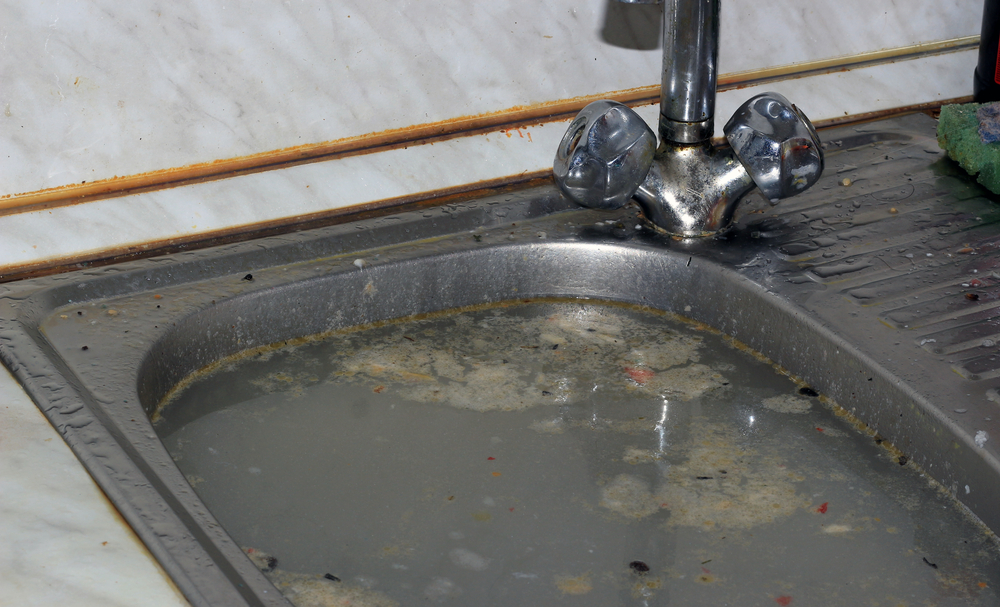
Ask Professionals for Help:
It could be time to call the professional plumber for help if you’ve tried the abovementioned techniques and nothing appears to be working. Plumbers can use a drain snake or hydro jet to clear the gutter clog.
Hydro jetting is a safe, effective and professional way to remove grease, sludge, and other debris from your pipes. A professional plumber can also help you find the problem’s source and ensure it doesn’t happen again.
Final Thought:
Grease doesn’t belong in your drain! It can cause serious clogs that are difficult to remove. Clean your drains regularly and take steps to prevent grease from going down the drain in the first place. If you have a stubborn clog, ask a professional for help.
Already poured grease down the drain? Don’t worry! A Better Plumber and Sewer Company Inc., serving Arlington Heights, IL, can help. We can quickly clean your pipes with our hydro-jetting service. Our jetting service will assist you in getting rid of everything clogging your pipes, thus saving you time and money.
8 Plumbing Quick Fixes You Should Learn
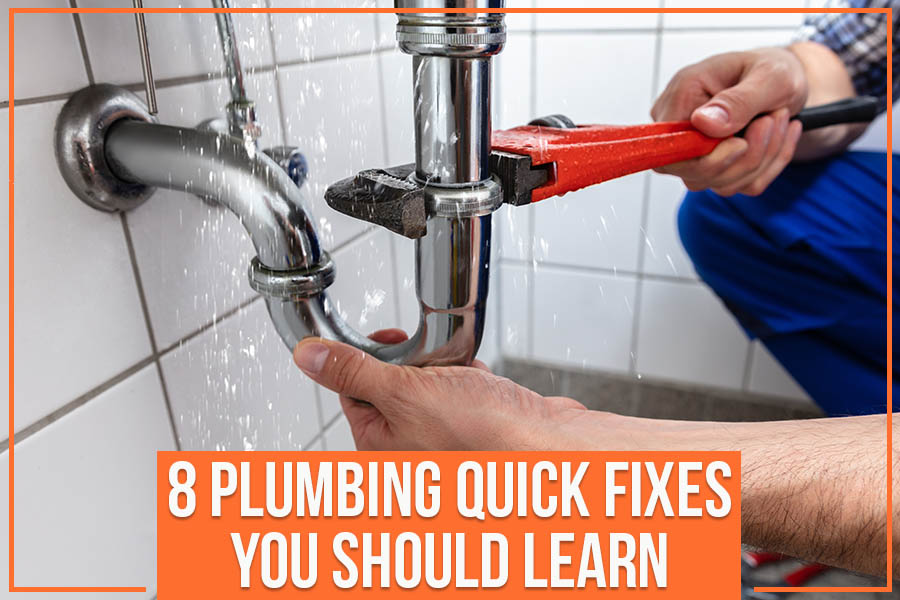
- Post author:admin
- Post published:October 27, 2022
- Post category:A Better Plumber Blog
Key Takeaways:
- Always check for obstructions before trying to fix a plumbing issue.
- Adjusting the water level in the tank can often solve toilet flushing issues.
- Replacing parts, such as the flush valve assembly, may be necessary for more severe issues.
- Some essential plumbing tools can be helpful, including pliers, a plunger, and a wrench set.
- In cases where you are unsure or unable to fix the issue, it’s best to call a plumber for assistance.
- Always turn off the water supply before fixing any plumbing issues.
- A Better Plumber & Sewer offers plumbing services to customers in Palatine, IL, and the surrounding areas.
We’ve all been there. The water starts dripping from the faucet, and we don’t know what to do. Or maybe the toilet is overflowing, and we have no idea how to stop it. Don’t worry – we’re here to help!
A Better Plumber & Sewer will discuss eight quick and easy plumbing fixes that you can do yourself! These tips are for people who have not experienced plumbers or for those who want to save money on plumbing repairs. So whether your sink is clogged or your toilet is overflowing, keep reading for some helpful tips!
8 Quick and Easy Plumbing Fixes You Can Do Yourself
1. Fix a Leaky Faucet
The most common plumbing problem is a leaky faucet. If you have a leaky faucet, following some simple steps can help you fix it yourself. First, try tightening the packing nut. It is the nut that is located under the handle. You may need to replace the washer if this does not stop the leak. You can take off the hold and unscrew the retaining nut. Be sure to take the old washer with you to the hardware store to get an exact replacement.
2. Unclog a Sink or Tub Drain
If your sink or tub drains slowly, it could be a clog in the drain. There are a few basic steps to remove the clog yourself. First, try using a plunger. You can use a plumber’s snake if this does not work. Insert the snake into the sewer and turn it clockwise as you push it down. Once you feel resistance, pull the snake out and see if there is anything attached to it. If neither of these tools solves the problem, you may need to call a plumber.
3. Fix a Running Toilet
If your toilet is running non-stop, it is likely due to a problem with the flapper valve. This valve is placed at the bottom of the tank to stop the water flow when the tank is full. If it is not sealing correctly, water will leak from the tank into the bowl, causing the toilet to run constantly. To fix this, replace the flapper valve with a new one.
4. Fix a Leaking Pipe
If you have a leaking pipe, there are a few basic steps to fix it yourself. First, try tightening the pipes and fittings around the leaky area with the pipe wrench. If the leak continues, you may need to replace the gasket or O-ring. You can remove the pipe fitting and take it to the hardware store to get an exact replacement.
Also, read our blog on the telltale signs of a broken sewer pipe.
5. Fix a Clogged Garbage Disposal
If your garbage disposal is clogged, there are several ways to fix it yourself before calling a plumber. First, use a plunger, an auger, or a plumbers snake. If those don’t work, you may need to disassemble the garbage disposal and clean it out manually.
6. Replace a Broken Toilet Handle
If your toilet handle is broken, you must change it, so it functions correctly again. To return a toilet handle, turn off the water supply to your bathroom by shutting off the valve behind it. Once the water is shut off, flush your toilet so that all of the water drains from the tank. Next, remove any nuts or bolts holding on to the old handle and install your new handle.
7. Fix a Toilet That Won’t Flush
If your toilet doesn’t flush, there are a few methods to fix it yourself. First, check to see if anything is blocking the flush valve opening. If there is, remove it and see if that solves the problem. If not, try adjusting the water level in the tank by rotating the adjustment screw clockwise or counterclockwise until the problem is solved. If that doesn’t work, you must change the flush valve assembly.
Check out more on plumbing fixes at the Family Handyman.
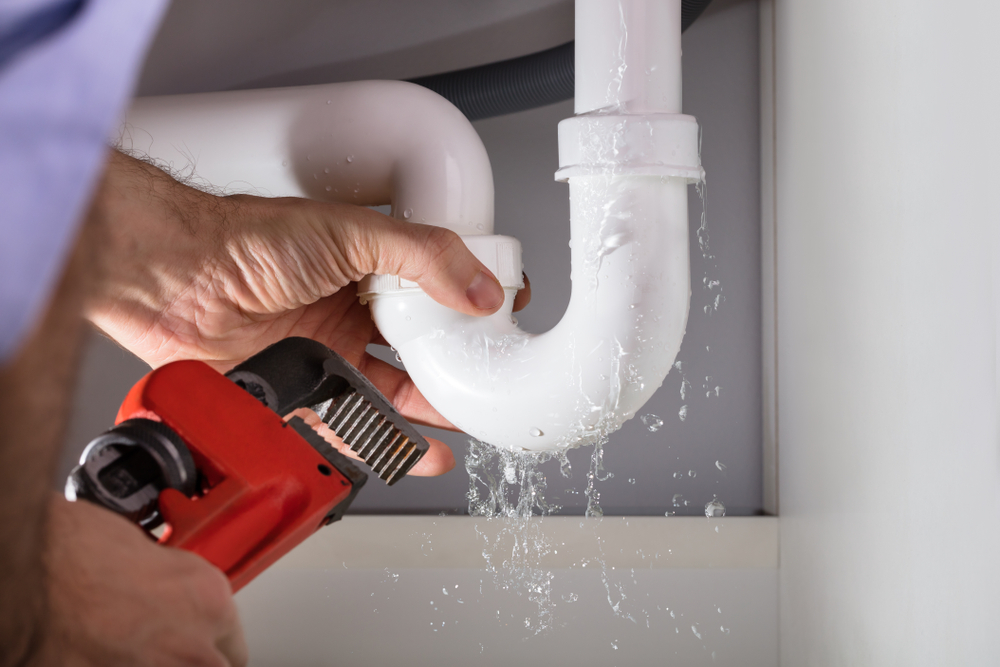
Tips for Quick Plumbing Fixes
1. Check the P-trap
The P-trap is a U-shaped pipe that is located under the sink. It is responsible for trapping debris and preventing it from entering the drain. If your sink is clogged, you should check the P-trap to see if it is full of water. If it is, you know the clog is located further down the drain.
2. Use a Plunger
If the P-trap is not full of water, you can try using a plunger to dislodge the clog. Place the plunger over the drain and pump it up and down vigorously. If done correctly, this should create enough suction to dislodge the clog.
3. Use a Plumbers’ Snake
If a plunger does not work, you can try using a plumber‘s snake. It is a long, flexible metal that can be inserted into the drain to reach the clog. Once you have inserted the snake into the drain, turn the handle clockwise to spin the coil and break up the clog.
4. Use Boiling Water
Another method you can try is pouring a pot of boiling water down the drain. It will help to break up any organic matter that may be causing the clog. Just be careful not to pour too much at once, as this could damage your pipes.
5. Call a Plumber
If none of these methods work, you may need to call a plumber to come and take care of the problem. Plumbers have special tools that they can use to clear even the most stubborn of clogs.
Need Plumbing Services in Palatine, IL?
When you need plumbing services, finding a company that will meet your needs and exceeds your expectations is essential. A Better Plumber & Sewer has been servicing the Palatine community for years and is dedicated to providing quality plumbing services at an affordable price. Contact us today for a free quote on our services, and we’ll be sure to take care of everything for you.
Plumbing Info In Round Lake, IL: What’s The Difference Between Residential And Commercial Plumbing?
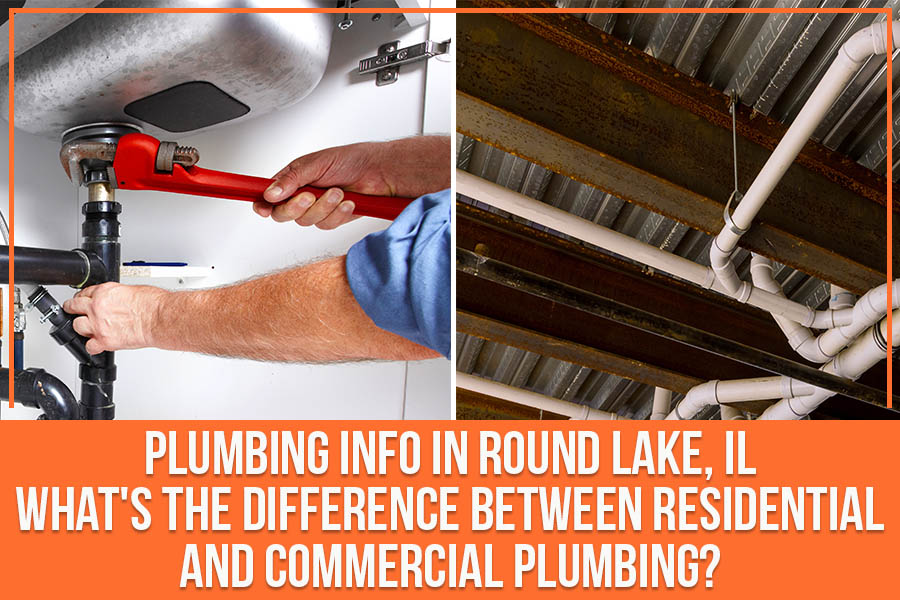
- Post author:admin
- Post published:October 6, 2022
- Post category:A Better Plumber Blog
Key Takeaways:
- Commercial plumbing is on a larger scale and more complex than residential ones.
- Commercial plumbing systems can handle large volumes of water and waste efficiently.
- Residential plumbing systems are smaller and can get by with fewer pipes due to the lower volumes of water and waste.
- Commercial plumbing often deals with grease, hair, and other debris going down the drains, so they need more powerful drain cleaning solutions.
- Sometimes, a commercial building may even need its septic tank or lift station.
- Be sure to research when looking for a commercial plumbing contractor to ensure that you’re getting the best possible results for your plumbing needs.
If you own a business, you must know about commercial plumbing vs. residential plumbing. Understanding how commercial differs from residential plumbing will help you make more informed decisions. A commercial plumbing system is designed to handle large volumes of water and waste; however, a residential plumbing system operates on a much smaller scale.
Besides that, there are several other differences between the two systems. Let’s discuss them in greater detail so you can better understand your plumbing needs.
What’s a Commercial Plumbing System?
Commercial plumbing is installed in a commercial space, like an office building, retail store, or restaurant. It is much large and more complex than residential. Commercial systems have to be able to handle large volumes of water and waste efficiently. That’s why they’re usually made up of multiple pipes connected to an extensive network of drainage and sewer lines.
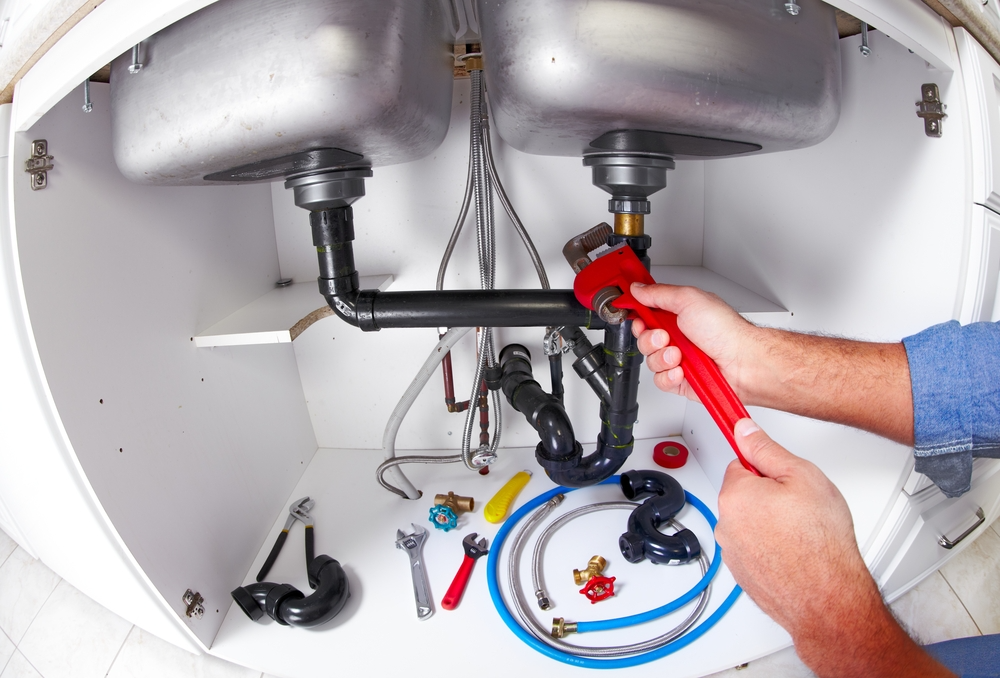
What’s a Residential Plumbing System?
A residential plumbing system is one that’s installed in a home. It is smaller and less complex than commercial ones. Since these systems don’t handle as much water and waste, they can get by with fewer pipes. Plus, they’re usually not connected to as many drainage and sewer lines.
Why Are Both of These Systems Important?
Residential and commercial plumbing systems play a significant role in our lives by providing us with the water we require to live and the means to get rid of waste. However, they can cause all sorts of problems when they break down.
Differences Between a Residential and a Commercial Plumbing System
Size And Durability of The Plumbing System
Commercial plumbing is much more extensive and complicated than residential one. These systems have to be able to withstand a lot of wear and tear as well as be able to handle a higher volume of water. It means they’re often made from more robust and durable materials.
Probability of Damage and the Repair Costs
Since commercial plumbing is used much more often than residential, it is also more likely to experience damage. This damage can be caused by several things, such as corrosion, mineral buildup, and leaks.
Difference Between Water Heaters
The water heaters in commercial plumbing are much more extensive than in residential plumbing. It’s because they need to be able to supply hot water to a larger number of people and for a more extended period.
Commercial water heaters also often have different features than residential ones, such as the ability to heat water more quickly or to maintain a constant temperature.
Health Issues
Commercial plumbing also needs to deal with a greater variety of substances, including those that can harm people’s health.
For instance, many commercial buildings contain kitchens, meaning grease and other food-related substances can end up in the plumbing system. If these substances are not removed properly, they can cause clogs and backups, leading to serious health problems.
On the other hand, residential systems typically do not have to deal with as many harmful substances as they are usually smaller and less complex.
The Efficiency of The Plumbing System
Efficiency is imperative for both commercial and residential buildings. A plumbing system not working correctly in a commercial setting can lead to losing customers or even legal problems.
In a residential setting, efficiency is essential for the residents’ comfort. For instance, if there is a leak in a pipe, it can cause water damage to the home and make it very difficult for the residents to live there comfortably.
Frequency Of Usage
Commercial plumbing systems are used much more frequently than residential ones. It’s because there are usually more people in a commercial setting who use the plumbing fixtures more often. Commercial plumbers must be able to handle higher volumes of water and waste.
Residential plumbing systems are not used as often. However, they can still handle a fair amount of water and waste. Even though fewer people use them, they use the fixtures more often than commercial ones. Residential plumbers must be able to handle higher pressures and temperatures.
Materials Used
The materials used in commercial plumbing are typically different from those used in residential ones. This is because commercial buildings often have different water needs than residential ones.
For instance, a commercial avenue may require hotter water because it is used for cooking or cleaning. Commercial plumbing also has more people using the plumbing fixtures simultaneously, so they must handle higher volumes of water.
Some commonly known materials used in commercial plumbing include:
- PVC pipes
- Copper pipes
- Stainless steel pipes
- Galvanized steel pipes
- Cross-linked polyethylene pipes (PEX)
- Chlorinated polyvinyl chloride pipes (CPVC)
Drainage Requirements
Drainage requirements for commercial buildings are different from residential ones. Commercial plumbing often deals with grease, hair, and other debris going down the drains, so they need more powerful drain cleaning solutions.
Commercial plumbing systems also need to handle sewage and stormwater runoff. Sometimes, a commercial building may even need its septic tank or lift station.
Hiring a professional is essential. Here are five plumbing mistakes that you should avoid.
How To Search for Commercial Plumbing Contractors?
When searching online, include your city and state in the search query. For instance, if you’re looking for commercial plumbing contractors, you can search for “commercial plumbing contractors near me in Round Lake, IL.” It will help you find plumbers close to you and serve the Round Lake area.
Once you’ve found some potential plumbers, read reviews and check out their websites. It will give you a better insight into the services they offer and whether or not they meet your needs.
When you’re ready to hire a commercial plumbing contractor, get several quotes before deciding. This ensures that you’re getting the best possible price for your budget.
A Better Plumber & Sewer offers various plumbing services in Round Lake, IL. Our experts understand the complexities of residential and commercial plumbing systems and offer the best solutions to fix your issues on time. Request a free quote today directly from our website!
5 Telltale Signs Of A Broken Sewer Pipe
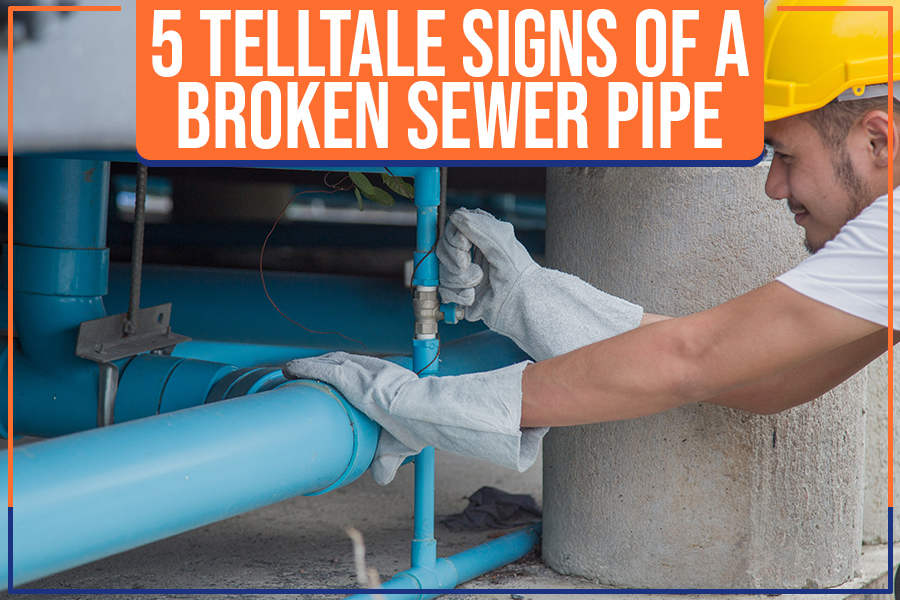
- Post author:admin
- Post published:September 16, 2022
- Post category:A Better Plumber Blog
Key Takeaways:
- Sewer pipe leakage is a severe issue as it can affect your home’s integrity and everyone inside its health.
- If you notice a sewerage smell in your home, there’s an opening in your sewer pipes.
- Pests can enter your home through open sewer lines.
- Open sewer lines create a mold that can adversely affect everyone inside your home.
- The soil in your home’s foundation can become soft due to water leaks from broken pipes weakening the foundation.
- Professional plumbers can quickly determine any problems and fix them before they become severe, saving you tremendous costs.
The sewer pipe installed in your home performs a thankless job. According to TrenchlessPedia, your sewer pipes work like a conduit for eliminating waste material. That is a nicer way of saying they are the forces of your home responsible for getting the unpleasant bits out.
Sewer pipes handle wastewater and debris that might be suspended inside them. According to The Spruce, older homes built before the 1950s feature pipes made from clay, cast iron, or fiber conduits. On the other hand, modern homes feature PVC and ABS pipes, although some cast iron pipes are still in modern homes. Ask professional plumbing services about the kind of sewer lines installed in your home to get a better idea.
The main reason cast iron has been in demand today is its durability. You won’t have to worry about any overloading issues with cast iron pipes, as they can handle water pressure just fine.
If your home has cast iron pipes installed, you should consider yourself lucky. Sewer pipe leakage is a severe issue, and it can affect the integrity of your home and the health of everyone inside it. These damages often require a sewer line repair or replacement, both of which are expensive undertakings.
Let’s discuss some telltale signs that your sewer pipe has received damage. Suppose you are facing any of the signs about to be discussed. In that case, you need to consider contacting professional plumbing services.
1. Sewerage Smell Is Permeating Your Home.
This is one telltale sign you’ll have a tough time ignoring. This is one of the signs you will recognize immediately due to how unpleasant it is.
If you’re noticing the sewerage smell in your home, it’s a sign of an issue in your pipes. Sewerage systems are usually airtight, and smell is released only if there’s an opening in the sewer lines. In this case, you may require a sewer line repair from professional plumbing services.
Moreover, if your sewer lines are entirely operational, you wouldn’t even smell anything. For anyone unaware, the sewerage smell has an odor that can be compared to rotten eggs. The scent is that way because it contains hydrogen sulfide.
You might reconsider if you think sewer gas isn’t a significant issue because it lingers in your basement. Prolonged exposure to sewer gas leads to sinus infections, headaches, bronchitis, pneumonia, and dizziness.
Even your pets may feel the adverse effects of sewer gas. You must realize the consequences and take action immediately to complete your sewer line repair or replacement by professional plumbing services.
2. Pest Infections
This next telltale sign is even more unpleasant than the previous one. For a moment, consider what you see in the sewer. There are different kinds of wastewater and pests lurking in the dark corners.
These little critters, including rats, flies, and cockroaches, call the sewers their home. While you don’t have to worry about them residing inside the city’s sewer lines, they can enter your home by opening your sewer lines.
These pests carry various diseases and shouldn’t be welcome inside your home to ensure health and hygiene for everyone inside. Avoiding pest infestation is another reason to get your sewer lines’ maintenance levels checked by professional plumbing services.
3. Growth Of Mold
Mold is another sign that hints at a damaged pipe. Mold can grow on most surfaces, and you may not immediately notice it as an alarming sign. It’s worth noting that mold requires moisture to develop. You must take action if you see it growing along the sewer pipe.
Like sewer gas, you should act immediately as soon as you notice mold in your house. Moreover, there are various reactions to mold. Some people may suffer allergies, including a rash or runny nose. Others that are allergic to mold can even suffer severe symptoms such as shortness of breath and asthma attacks, according to WebMD.
The elderly and infants inside your home may also be affected adversely by the presence of mold, which is why you need to get rid of it as soon as you can.
4. The Grass Near Your Home Looks Greener Than Usual.
To find out whether you have a broken pipe, take a closer look at where the line should be outside your home.
Check the condition of the grass, and if it looks noticeably greener, it is because a sewer pipe may have busted. The water isn’t the only thing that comes from the busted tube; several harmful substances are also present in wastewater.
So, the next time you see a grass patch looking unusually healthy, confirm the causes, as there may be more to it.
5. Cracks In Your Foundation or Asphalt
This is the extreme stage of broken sewer pipes; hopefully, it never reaches that far. Still, broken sewer pipes can be a reason why you may notice cracks in the foundation of your house or your driveway.
The soil becomes soft when water leaks from broken pipes, and your foundation weakens. If this issue is ignored for too long, you’ll notice cracks.
This is one significant reason you should get maintenance scheduled on time. Getting your foundation repaired is expensive, and you may face various inconveniences if your home’s foundation gets damaged.
Here are some handy tips you might want to check for preventive maintenance for your sewer lines.
Why Hire Professional Plumbing Services for Sewer Line Repair?
Professional plumbing services have the experience and expertise to diagnose and repair broken sewer pipes properly. They will also be able to advise you on the best course of action to take to avoid future problems.
So, if you think you might have a broken sewer pipe, don’t hesitate to consult a professional for an inspection. They’ll be able to quickly determine if there is a problem and get it fixed before it becomes a more significant issue.
Professional plumbers have the right tools and equipment to do the job correctly. They will also be able to troubleshoot any problems they come across and find the root cause of the issue. This means that they can fix the problem quickly and efficiently without causing any further damage to your home.
A Better Plumber & Sewer provides various residential and commercial plumbing services in Arlington Heights, IL.
If you think you are facing any plumbing-related issues, get a free quote from our website today!
Hydro Jetting: What’s Cool And The Rules
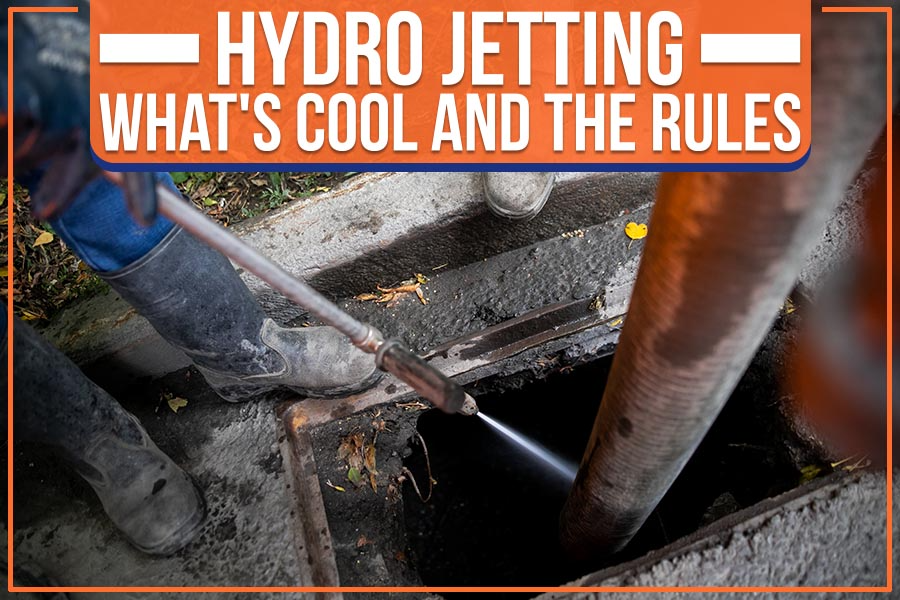
- Post author:admin
- Post published:September 1, 2022
- Post category:A Better Plumber Blog
Have you ever seen those commercials for Hydro Jetting? You know, the ones with the happy homeowners who can’t believe how cool their new bathrooms look? They’re always amazed that they can blast water like a pressure washer through their plumbing.
Read on if you’re curious about Hydro Jetting and what it can do for your home! We will explain all the basics and then tell you some rules you need to follow if you settle on getting this service done. And trust us, once you see all the fantastic benefits, you’ll scramble to find an expert company like A Better Plumber & Sewer.
Hydro Jetting: Explained For Novices!
Okay, so let’s start with the basics. Hydro Jetting is nothing but using high-pressure water to clean out your drains. It’s also great for removing grease, sludge, and built-up grime that can cause your pipes to clog. And since it uses water instead of harsh chemicals, it’s much better for your plumbing and the environment.
This technology has been around for a while, but it’s only recently become widely available to homeowners. And we’ve got to say; we’re pretty excited about it!
Basics Of Hydro Jetting
Now that we’ve covered the basics let’s get down to the nitty-gritty. Hydro Jetting works by using a high-pressure water hose to blast away built-up grime and debris in your drains. The water pressure is so intense that it can even cut through tree roots!
This is a huge benefit over traditional methods like drain snakes and chemical cleaners, which can only do so much to clean your pipes. Hydro Jetting will leave your drains sparkling clean and free of clogs or blockages.
In addition to being incredibly effective, hydro jetting is also safe for your plumbing and the environment. Unlike chemical cleaners, there are no toxic fumes or chemicals to worry about. And since the only thing being used is water, there is no risk of damaging your pipes.
Is Hydro Jetting A DIY Thing?
Nope, hydro jetting is not a do-it-yourself job. This is a job for professionals because it requires special equipment and training. Trying to do it yourself could result in severe injury or damage to your property.
The hydro jetting process involves propelling a hose into the sewage line at pressure ranges of up to 4000psi. The hose has a rotating nozzle that blasts away any debris in its path. This is not something you want to try yourself!
When Should I Get Hydro Jetting Services?
The most common question we generally ask is, “how often should I get my drains cleaned?”
The answer relies on a few different factors, such as:
- How many people live in your household: The more people in your household, the greater the chance of hair, grease, and other debris making its way into your drains.
- What type of drain system you have: If you have a septic tank, you’ll need to have it cleaned and pumped far less often than if you are on a city sewer system.
- How old your dwelling is: older homes tend to have pipes made of materials more susceptible to build-up and corrosion.
- Whether you use chemicals: Many household cleaners contain chemicals that can contribute to pipe build-up over time.
So, as a general rule of thumb, we recommend that most homeowners have their drains cleaned at least once a year.
Want to learn more about drain & sewer maintenance? Check out our blog having Tips For Preventative Maintenance Of Drains & Sewer Lines.
What Rules Do You Need To Follow?
There’re a few simple rules that you need to follow if you decide to get your drains hydro jetted.
1. Don’t Put Anything Down Your Drain That Doesn’t Belong There:
This should be common sense, but unfortunately, many people don’t think twice about what they’re putting down their drains.
2. Use Strainers In All Of Your Sink Drains:
This will help catch anything that could clog up your pipes, like hair or food particles.
3. Invest In A Good Quality Plunger:
A plunger can be your best friend when dealing with clogged drains. If you have one on hand, you may avoid calling in a professional altogether.
4. Know When It’s Time to Call in A Professional:
Some clogs cannot be fixed with a plunger or a store-bought drain cleaner. If you are dealing with a recurring clog, it may be time to call a professional for hydro jetting services.
5. Be Prepared for The Hydro Jetting Process:
Hydro jetting is a powerful and effective way to clear out stubborn clogs. Still, it’s also essential to be prepared for the process. Make sure that all your drains are clear before the technician arrives, and have towels on hand to wipe & clean up any water that may splash during the procedure.
6. Follow The Technician’s Instructions:
Once the hydro jetting process begins, it’s essential to follow the technician’s instructions. In most cases, you’ll be asked to stay out of the way while the technician works, and you may be asked to turn off any water sources that could interfere with the procedure.
7. Inspect Your Drains After Hydro Jetting:
After the hydro jetting process is complete, inspecting your drains for any damage is a good idea. If you notice any cracks & holes in your pipes, it’s essential to have them repaired as soon as possible to prevent future problems.
8. Avoid Using Harsh Chemicals:
One of the benefits of residential hydro jetting is that it removes the need for harsh chemicals to clean your drains. Harsh chemicals can damage your pipes and cause more problems in the long run.
Looking For Hydro Jetting Services in Fox Lake? We Can Help!
A Better Plumber & Sewer is a full-service plumbing and drain cleaning company serving Fox Lake and the surrounding areas. We offer a wide range of services, including hydro jetting, to keep your drains clean and free-flowing. If you require hydro jetting or any other plumbing or drain cleaning services, contact us today or get a free quote!
5 Hot New Advances In Water Heating Technology
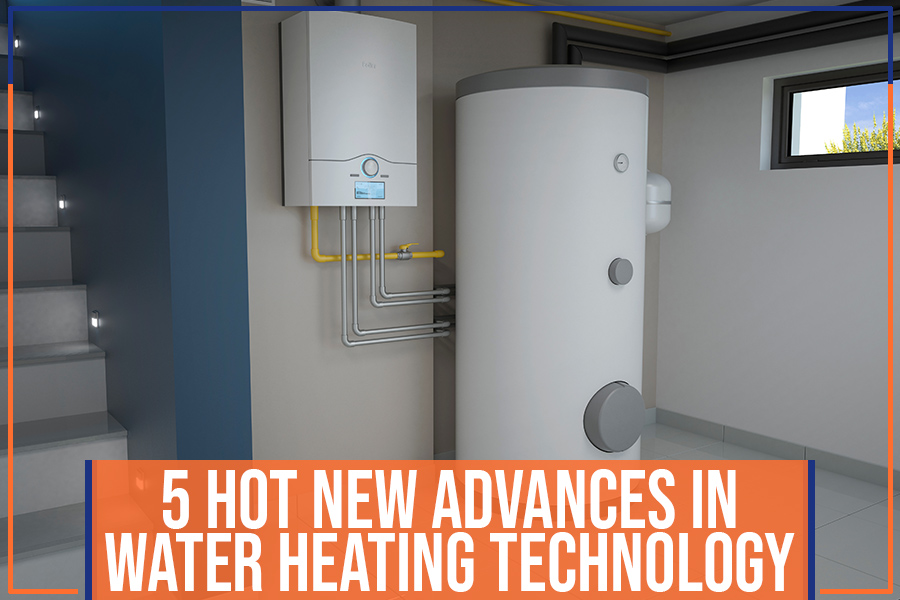
- Post author:admin
- Post published:August 24, 2022
- Post category:A Better Plumber Blog
Like most people, you probably take hot showers for granted. It’s hard to imagine life without them! Fortunately, water heating technology is constantly improving, and there are now some significant new advances in this area that can help make your life a lot more comfortable. In this blog post, A Better Plumber & Sewer will discuss some of the hottest new advances in water heating technology.
01: Tankless Water Heaters
Tankless water heaters are the newest development in ecologically friendly water heater technology. Traditional tank versions waste energy since heated water cools and needs to be heated again. Whereas tankless systems entirely omit the tank and only heat water when needed.
Tankless water heaters also use less room because they are significantly smaller than conventional ones. And because they don’t have a tank full of water, there’s no risk of leaks. Tankless water heaters also use up to 25% less energy than traditional ones, which may benefit both the budget and the environment over time.
02: Solar Water Heaters
Solar water heaters are worth considering if you’re looking for an environmentally friendly and cost-effective way to heat water. Solar panels are used in solar water heaters to capture solar energy and turn it into heat. The water in a storage tank is then heated using this heat.
Solar water heaters are very efficient and can save much money on utility bills. They are also eco-friendly because they rely on renewable energy from the sun to operate.
03: Geo-thermal Heat Pump Water Heaters
Geothermal heat pump water heaters are water heaters that use the earth’s natural heat to warm up the water. These systems use a ground loop to collect heat from the earth and then transfer it to the water in a storage tank.
In water heaters, heat is often drawn from the air during the warmer months and deep under the soil during the colder winter months. They are also eco-friendly because they rely on renewable energy from the earth to operate.
04: Air-Source Heat Pump Water Heaters
Air-source heat pump water heaters are a type of water heater that uses the air around it to warm up the water. As they use the air around them, they should be installed in a location that produces excessive heat, close to a furnace. These systems often have the effect of chilling the space where they are installed, making them ineffective in colder climates.
05: Under-Sink Kitchen Water Heaters
Hot water heating units can now be made smaller thanks to technological advances. Today’s cutting-edge kitchen sink ideas involve placing an under-sink water heater just beneath the kitchen sink for fast, on-demand hot water.
Under sink water heaters may be tankless or utilize a tiny tank of just 1-2 gallons to give hot water when and where you need it. For homeowners that want a lot of hot water at once and on-demand in the bathroom, under-sink water heaters can also be a fantastic alternative for the bathroom sink in addition to kitchen sinks.
At Better Plumber & Sewer, serving Arlington Heights, Illinois, we enjoy keeping up with all the newest plumbing developments, including innovative water heating technologies.
Call us today if you’re considering replacing your water heating system or want to learn more about your alternatives.







